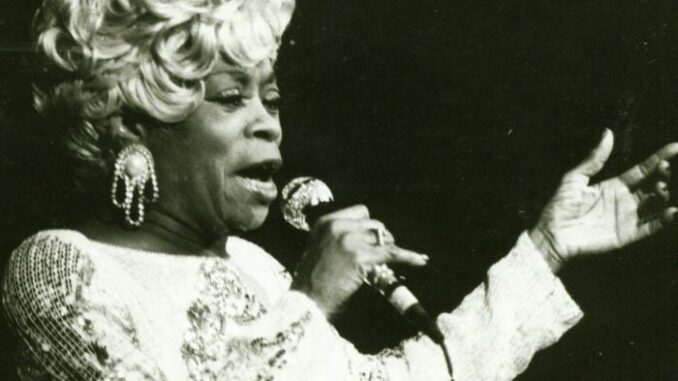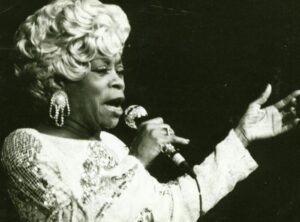
She’s alive and not letting her guard down. She once said she would last until the end of time, while thinking, quite rightly, that she was beyond time. Although not beyond Cuba, since she is all Cuban. Juana Bacallao, Juana the Cubana, legendary, surreal, original, celebrated her 95th birthday, May 26.
She shares true and not-so-true stories, attributed and apocryphal, fables of various kinds that feed the myth. All Cubans, of yesterday and today, can feel like co-protagonists or witnesses to any anecdote in which Juana takes the leading role.

But I am not going to write about this Juana, but rather the one who belongs to our popular culture, to Cuban music. Ever since Obdulio Morales discovered the voice of a Black girl in her twenties, who sang while she scrubbed the floor of a house where she worked as a maid, the maestro knew she was a jewel that did not need much polishing, did not require sophistication, that with a few rudiments of the stage and the necessary adjustment to the orchestration, she could move from guaracha to pregón, from son to the nascent mambos, in a beat.
What’s more, she made a 100% contribution: the strange event, the bewildered carelessness, knowing when to enter or leave the public eye, the teasing and parodies, featuring herself.
Obdulio took her to the Martí theater stage and composed a number to serve as her personal stamp, changing her life. Her real name was Neris Amelia Martínez Salazar, until she sang “Yo soy Juana Bacallao,” with such punch that, in 1953, Rosita Fornés chose it for the soundtrack of the film Tin Tan in Havana.
Juana became a creature of the night – but not on television. She went to radio, since on the household screens of the time she was out of place: Black, sassy and unpredictable. In 1950s nights and those of decades that followed, she always had a niche, in the bad and the good; the good of the 60’s, when she headed the cast of an absolutely delirious show, La Caperucita (Little Red Riding Hood), having fun, next to someone who must not be forgotten, Dandy Crawford.
The artist feels at home among her people. More than once she has said that the Revolution made her a person and I know that in the pantheon of her personal affections she holds special places for Fidel and Almeida.
Juana delights and surprises us, but we must take her seriously for being so unique, singular, inimitable. And, of course, on her 95th, birthday, incombustible.

Leave a Reply